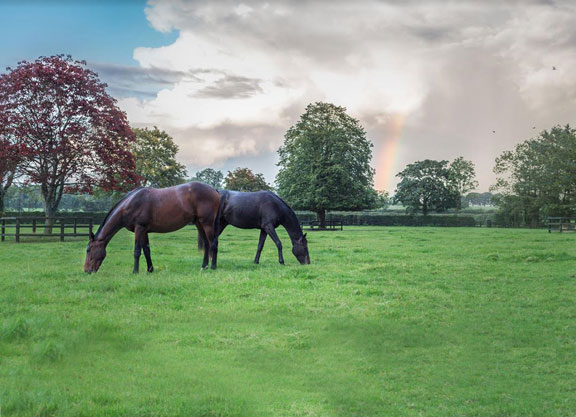In the coming months, Godolphin Flying Start trainees will provide insight into practices experienced and observations taken on their worldwide travels. First up is current second-year trainee and Australia native Anna Power, who discusses her country's practice of spelling.
The Godolphin Flying Start programme is an unrivaled opportunity to learn about Thoroughbred racing and breeding across the world. The cultural differences of the industry in each country have been eye-opening and surprising. For example, prior to my time in America I had never foaled a mare indoors.
“It's really all the same no matter where you go,” one lecturer said, talking about how the outcome of elite horses racing on the track was the same across all borders.
'Same same, but different,' I thought. With factors such as weather and historical practices influencing decisions, it is easy to understand some of the differences. Needless to say, I was excited to reach the Australian phase of the course, where the practices would be familiar and I would not be a duck out of water.
One of the first things that my fellow trainees found extremely surprising was the systematic use of spelling in Australian training regimes; giving horses time away from the track for the opportunity to rest, recover and just be horses. It was strange to me that something that was such a normal practice in Australia seemed foreign to my fellow trainees.
Various studies have identified musculoskeletal injuries are the primary cause of death of racehorses across the world. In a recent study for Racing Victoria, Professor Chris Whitton from the University of Melbourne found that “low levels of microdamage are of no consequence, but if allowed to continue to accumulate injury can develop.” Simply treating horses with pain relief and anti-inflammatories while continuing 'soft' training and racing does not allow bone to repair properly. The scheduled breaks and use of spelling farms in Australia allows microdamage to heal and for bones to strengthen and remodel.
Professor Whitton also found that “over a seven-week period, one in 50 horses will develop a limb injury that will put them out of training for at least six months.” Knowing this, why is it that it is only in Australia that spelling is a vital part of the culture of racing?
The ever-growing financial pressures of training coupled with the demands of owners wanting to see their horses race frequently has led to a culture where sometimes the well-being of the horse and the longevity of its career is not always at the centre of decisions. While the favourable climate and land mass does allow trainers in Australia to make active use of spelling farms, there is an opportunity for the development of spelling farms across other racing jurisdictions. Perhaps once they are more readily available, they will be more commonly used.
The year-long circuit of racing throughout the United States does not provide break periods for horses. Similarly, the nature of the shorter flat racing season in Europe requires horses to be racing during this time. Therefore, if we want to promote the use of spelling it is up to the trainers to include it in their plans and to educate their owners on the benefits of time off.
While no racing jurisdiction is perfect, the consistent use of spelling by Australian trainers is a technique that the Flying Start trainees have been impressed by, and I for one think there is more room for its use internationally.
Not a subscriber? Click here to sign up for the daily PDF or alerts.






